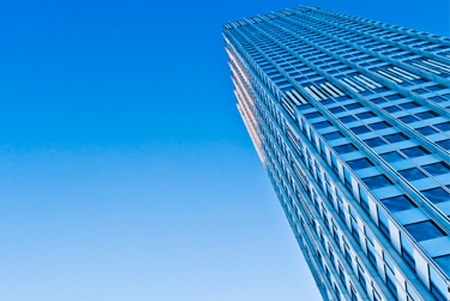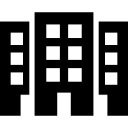



Datrix Training offers a wide range of training courses in Dublin, with classroom, onsite or online training options. Some of our most popular courses are PRINCE2® project management training and qualifications in ITIL® IT Service Management. These professional certifications are the best way to enhance employability and learn new skills, whether you’re looking to improve your position in your current career or enter a new field and stand out among the other candidates.
Our classroom courses are offered in modern, comfortable venues around Dublin in easy to reach locations via public transport or by road. We understand that not everybody is able to time off work to attend classroom training and pay the costs associated with it like travel and accommodation. That’s why we also offer our courses with an onsite option, meaning we bring the training to your workplace. This approach also means we can adapt our training to meet your needs, whether you need just a few staff to be trained or a whole group.
Finally, we offer online courses for those who are unable to attend in person in Dublin. Attend online from anywhere with an Internet connection with these eLearning variants of our most popular courses.
Dublin is the capital city of Ireland and its largest city. It is situated at the mouth of the River Liffey in the province of Leinster. With a population of over 1,200,000, it is classified as a major global financial centre and the economic centre of Ireland.
Dublin’s history begins with the Vikings, who between 800 and 900 AD made a number of raids on churches in the area, before later establishing a settlement on the site. Dublin continued to be a Viking settlement until the Normans invaded Ireland in 1169. The city was ruled by the Normans for 700 years, growing and prospering during this period. By 1640, Dublin had grown significantly, but a plague from 1649-1651 severely affected the population. It didn’t take long for the city to bounce back, however, and by 1700 the population was 60,000. The city continued to grow, and in the 18th century many of the city’s Georgian features were built, including many of the main famous streets, along with Parliament House and the Royal Exchange. The Acts of Union of 1800 transferred the control of Ireland to Westminster Parliament in London. As a result of this, Dublin lost out economically and some of the city’s wealthy neighbourhoods fell into disrepair. In 1916, rebels tried to end England’s rule of Ireland by occupying key areas in Dublin, leading to fierce fighting which damaged much of the capital. In the 1990s till the early 2000s Ireland experienced great economic growth which affected Dublin, resulting in great expansion due to foreign investment. The subsequent recession restricted this growth, but post-2003 things have sped up again thanks to investment from corporations such as Google.
There are a number of universities and higher education institutes in Dublin. The oldest university in Dublin is The University of Dublin. Modelled after the collegiate systems of famous English universities Oxford and Cambridge, the university was established in 1592 when Trinity College was given university status. Although there were plans to add additional colleges to the system, none were established, and today Trinity College remains The University of Dublin’s only constituent college. Dublin is also the site of University College Dublin, which was established in 1854 and is Ireland’s largest university. The university is part of the National University of Ireland, which also encompasses the Royal College of Surgeons in Ireland – an institution based on the city. The third university in Dublin is Dublin City University, which began as the National Institute for Higher Education, Dublin in 1975 before gaining university status in 1989. Other higher education institutes in Dublin include the Dublin Institute of Technology and Dublin Business School.
One of Dublin’s most famous landmarks is Dublin castle, which was built in 1230 in order to help defend the city. Severe fire damage has removed almost all trace of the original medieval castle, and extensive rebuilding in the 18th century means today the site is more in the style of a Georgian palace. A slightly different, but no less historical attraction is the Guinness Storehouse, which explains to visitors how the famous beer is made. Visitors even receive a complimentary pint of the black stuff. Dublin Zoo is one of Dublin’s most popular attractions and Ireland’s largest zoo. It provides a home to some 400 animals. The Book of Kells, a medieval illuminated manuscript from 800 AD, is housed at Trinity College. Another iconic landmark is Ha’penny Bridge, a pedestrian bridge which spans the River Liffey and is made from cast iron. There are also a large amount of parks in Dublin, including Phoenix Park, one of the largest walled parks in Europe.
Dublin is the location of the largest sports stadium in Ireland, Croke Park. Although Croke Park primarily plays host to Gaelic sports such as hurling and Gaelic football, it has also been used for large scale concerts by bands such as U2 and Red Hot Chili Peppers. Another large stadium in Ireland, the Aviva Stadium, hosts football and rugby matches including the 2011 UEFA Europa League Final and the 2013 Heineken Cup Final. Many football clubs have their home in Dublin, including Bohemian F.C., Shamrock Rovers and St Patrick’s Athletic. Other sports Dublin is famous for include the Dublin Marathon, which has been held every year since 1980. Race courses in Dublin include Shelbourne Park and Leopardstown. The city also has stadiums for boxing (The National Stadium) and basketball (The National Basketball Arena).
Dublin has produced a wide range of notable artists, politicians and businessmen. These include playwright Samuel Beckett, writers Maeve Binchy, James Joyce, Bram Stoker and Jonathan Swift, musicians Bono and Bob Geldof, and actors Gabriel Byrne, Colin Farrell and Michael Gambon.
For more information about our range of courses in Dublin, email info@datrixtraining.com or phone us on 0800 781 0626.